PROVINCETOWN — The 380 voters who assembled in town hall on April 7 worked through the 107-page warrant booklet with relative ease, approving 43 articles including a $1.4-million override measure to fund an expansion of the fire dept.

Voters overwhelmingly endorsed two new sections of the zoning code: a more urban design plan for Shank Painter Road and a mixed-use overlay district that will require stores, restaurants, galleries, and hotels that face Commercial Street to retain commercial space on their ground floors rather than converting to single-family homes.
The voters also approved three out of four petitioned articles.
Article 20, which asked the select board to convert public restrooms in municipal buildings into gender-inclusive facilities, passed unanimously. Article 21, a nonbinding resolution asking that plastic building trim only be cut indoors to reduce pollution, passed with only one voter opposed, and Article 22, which asked the historic district commission to approve the use of nonflammable building materials including concrete-fiber siding and artificial slate shingles, drew only about seven votes against.
The fourth measure, which would have capped the number of short-term rental certificates the town could issue to homeowners at 1,000, drew about 30 votes in favor and about four times that many against.
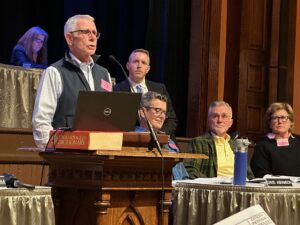
The only other article to be defeated was an expansion of the town’s most permissive zoning district, the “town commercial center” zone, about a quarter-mile deeper into the East End. The article would have moved the edge of the TCC zone from Dyer Street to Cook Street, bringing a number of businesses, including the Mews, Ciro & Sal’s, Angel Foods, the Packard Gallery, and the Provincetown Art Association and Museum, into the commercial zone.
After a debate about whether commercial uses might displace East End residents, the measure failed in the only counted vote of the night, with 94 supporting it and 106 opposed.
Budget Override
The $1.4-million override was part of Article 2, the town’s operating budget, which increased by a total of $4.6 million. Half of that increase was due to debt payments for the $11.7 million Motta Field project and other recent debt exclusion votes, Town Manager Alex Morse told the voters, but those payments were already financed by corresponding increases in property taxes.
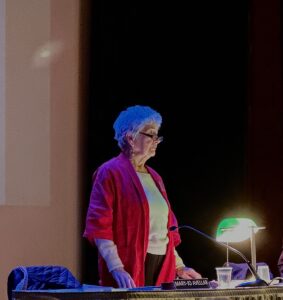
The unfunded increase in the budget was primarily due to growth in the town’s public safety departments: the addition of leadership staff to the fire and EMS dept. and an increase in the overtime line for the police dept.
In a change precipitated by the collapse of the nonprofit Lower Cape Ambulance Association, the town had onboarded 20 full-time firefighter-paramedics and firefighter-EMTs over two years. The town now operates on a “combination department” model that relies on full-time staff working at the fire station and volunteer firefighters who can respond from their homes and job sites in Provincetown and Truro, Morse said. The override would fund four experienced fire captains to supervise those firefighter-medics and fund the fire chief job as a full-time position.
The finance committee had split 5 to 4 on the budget vote, and a minority report from finance committee member Doug Cliggott warned that higher costs could be coming.
“Promises of significant overtime may be required to attract new hires here,” Cliggott said, since fire depts. in the mid-Cape are easier for many candidates to reach and are also hiring. “Attracting and retaining high-quality call and full-time firefighters is going to be more expensive in coming years,” he said.
Several voters had questions. “I support the budget,” said Dennis Minsky, “but we may sometime have to face the reality of just how expensive it is to live in this town.”
The budget override passed overwhelmingly, with only about 10 votes against, and will appear again on ballots at the May 13 town election.
Unanimous Votes
From there, a series of measures passed by unanimous or near-unanimous votes. Only about seven people voted against Article 8, which authorized a $4-million town contribution to an affordable-ownership condominium project that will be built at the site of the former police station at 26 Shank Painter Road, and about eight people opposed Article 9, which authorized a $1.3-million contribution to the “Barracks” seasonal dormitory and year-round apartment building to be built at 207 Route 6.
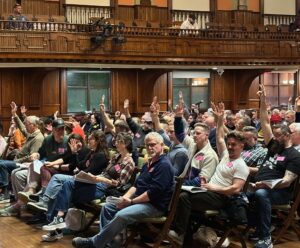
Both measures would be financed with receipts from the town’s 6-percent rooms tax on bookings in hotels, motels, and short-term rentals, Morse told the voters, rather than with property taxes.
There was more discussion of Article 17, which adopted the state’s new “seasonal communities designation” that offers towns in the Cape, Islands, and Berkshires new tools to encourage year-round housing.
Laura Rood introduced a motion to indefinitely postpone the article, saying that “the rules and regulations have not been promulgated, and we really don’t know what we’re voting on.”
State Sen. Julian Cyr, who is now a Provincetown voter, came to the microphone and explained how the designation had been created and that the remaining rules to be written were “little specific details.” Voters wound up endorsing Article 17 with only two votes against.
After Michelle Axelson and Jamie Elizabeth Grasso presented their article to redesign public bathrooms in municipal buildings to include people of all genders, several voters spoke up for it.
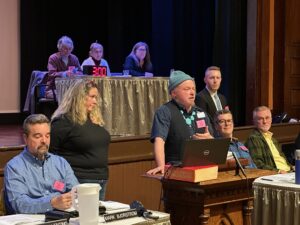
“When a loved segment of our community stands up and says there’s a major safety issue in town and around the nation, we’re a community that says, ‘I hear you,’ ” said Aaron Clayton.
When the article passed with a sea of hands in favor and none against, the room broke into cheers and applause.
Finance committee member Doug Cliggott then took the stage again to present his petitioned article on short-term rentals. He cited census data showing that year-round rental properties had declined by almost 50 percent in 23 years, even while the town added more than 700 units to its total housing stock.
The town is creating deed-restricted affordable housing, Cliggott said, “but what goes down the drain are existing rental units that get converted to some other use.”
Rob Tosner said that capping short-term rentals would block the pathway followed by many homeowners who have bought houses here, rented them part-time, and then eventually moved to town. Michael Gaucher said that many cities around the country had implemented short-term rental caps in an effort to protect their year-round rental stock.
About 30 people voted for Cliggott’s measure; about 120 voted against.
Zoning Votes
A measure to cap at three the number of hotel licenses any one operator could hold passed unanimously, as did updates to the town’s inclusionary bylaw and growth management bylaw.
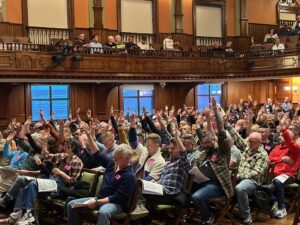
The measure to expand the town commercial center district to Cook Street drew several critical comments, however, including from Chris Snow, who warned that it would “allow a sprawl of commercialism from downtown,” and Tom Boland, who worried it would “erode the residential characteristic of one end of town.”
No one from the planning board spoke for the article, and it was defeated 94 votes to 106 in the night’s only counted vote.
Just a few articles later, however, the voters were enthusiastic about extending the town’s new mixed-use overlay district, which had passed with only about eight votes against.
A separate measure had been included on the warrant in case the East End rezoning failed, and voters largely supported the idea of retaining the existing commercial spaces between Dyer Street and Cook Street even though they hadn’t wanted to see more commercial spaces created there.
“This was first brought up at the planning board a couple of years ago,” said planning board chair Dana Masterpolo, “and we’ve had meeting after meeting to think through it, probe it, refine it. The idea is that the area abutting Commercial Street will remain commercial and lively.”
Only about 12 people voted against the extension of the overlay district, and only about three opposed the Shank Painter zoning code, which was the last major vote of the evening.
A Dignified Meeting, With a Few Laughs
By Brian Zayatz
PROVINCETOWN — In most town meetings in the Commonwealth, the rarefied act of civic self-governance takes place in settings rather mundane — usually a high school gym.
Provincetown is blessed with an auditorium rich in hardwoods and stage lighting, a place that feels like a civics book. The town leans into the setting.
With a clip-clop of boots, a color guard of police officers brought the American flag to the front of the room just after 6 p.m. on April 7. Town Moderator Mary-Jo Avellar — that’s “Madam Moderator” to you — called for the assembled voters to rise and join in the national anthem.
Thankfully, no one followed her accidental instruction — the voters instead said the pledge of allegiance in perfect unison. The handsome room was spared the sound of 380 voters missing high notes.
Five grade schoolers and music teacher Liam O’Hara then led the voters through an adorable rendition of “This Land Is Your Land,” a much more crowd-pleasing choice.
“I don’t know about you, but that always makes me teary,” said Avellar.
With the meeting now underway, Avellar and Town Manager Alex Morse kept things moving at a caffeinated pace. For some articles, voters took to the floor to ask questions and state respectful disagreements.
There were several oblique references to the Trump administration, including one by Morse when he introduced finance committee member Doug Cliggott, who was presenting the “minority report” of four members who had voted not to recommend the budget.
“Since we still live in a democracy here in Provincetown, you’ll also hear a minority report from one of my esteemed colleagues,” Morse said.
From the nonvoters’ section in the balcony, the action felt distant enough that one could recast various speakers as celebrities — Morse played by the rapper Macklemore, and the bespectacled Cliggott by the actor Bob Balaban. The upstairs seats are fixed and tightly packed, and this reporter began to gaze enviously at the upholstered and more generously spaced seats below.
After several voters had their say, the budget passed overwhelmingly. A handful of police officers and firefighters exited and conferred in the stairwell. Balaban delivered another minority report on Article 8, and the moderator gently warned him he had run over his allotted five minutes.
Voter Frank Vasello rose to question the appearance of a planned below-market condominium project. “We’ve seen that design over and over again,” he said. “Is that set in stone, or is there room for that to change?”
The crowd laughed — several clapped — and even Macklemore cracked a smile.
The voters clapped again when state Sen. Julian Cyr took to the microphone to describe the state’s new seasonal communities designation, which he had helped draft. The voters approved that measure by a wide margin, and afterwards Avellar called for a 15-minute break.
Second Half
The room was noticeably less crowded as townspeople reconvened and the sponsors of citizen petitions took center stage. Michele Axelson kicked things off with Article 20, a nonbinding resolution in support of converting restrooms in municipal buildings to meet gender-inclusive standards.
Axelson and co-presenter Jamie Elizabeth Grasso traded off the lectern, which flummoxed Avellar more than once, but the voters received them with multiple rounds of applause and unanimously endorsed their article.
Cliggott then took to the lectern for the third time to introduce Article 23, a cap on short-term rentals, and kept his presentation at just five minutes.
There was shuffling on the floor as voters rose to speak for and against the rental cap. After only three had spoken, a fourth voter moved the question; the audience approved the cutoff and handily defeated the cap. Most of the remaining observers in the balcony went for the exits.
The meeting went on, and those remaining began to show some fatigue. Select board members Erik Borg and Austin Miller, seated next to each other, leaned back, sighed heavily, and shook their heads in almost perfect synchrony during the discussion of a mixed-use overlay district.
Jonathan Sinaiko asked if a subsequent measure to extend that overlay district would mean that Angel Foods would have to remain a commercial space. When the reply came in the affirmative, Sinaiko said, “Well, I’m for that” and sat back down, to laughs.
The only question from voters about the Shank Painter Road rezoning came from Emma Fillion and Michela Murphy, who asked about its allowance for “adult entertainment by right” in the use table.
“I didn’t study up on the nudity,” said Morse, looking stumped. An answer came from Town Planner Thaddeus Soulé: the existing rules for Shank Painter Road already allow adult entertainment there, which wouldn’t be changed by the new zoning.
“Oh, so it’s already allowed, and no one’s applied for a permit,” said Murphy, her concerns mollified.
“Now everybody knows it’s allowed!” joked Morse.
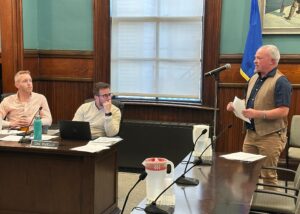
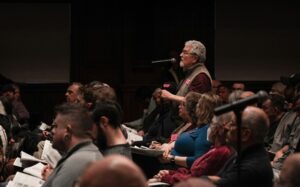
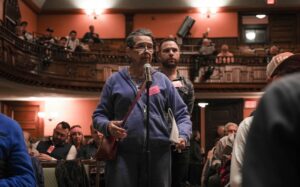
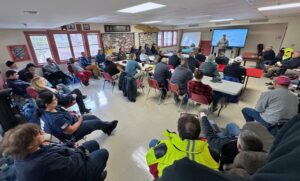

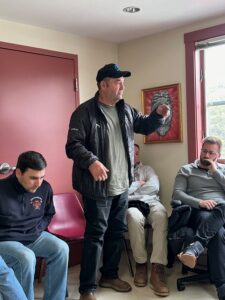
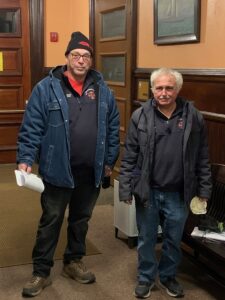
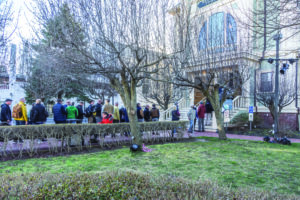
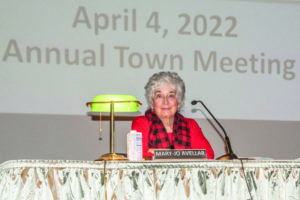

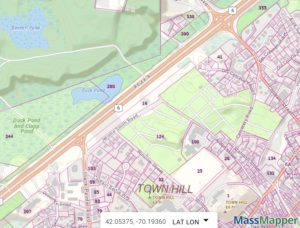
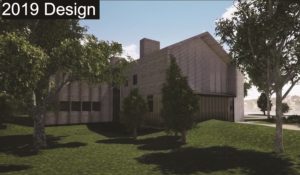
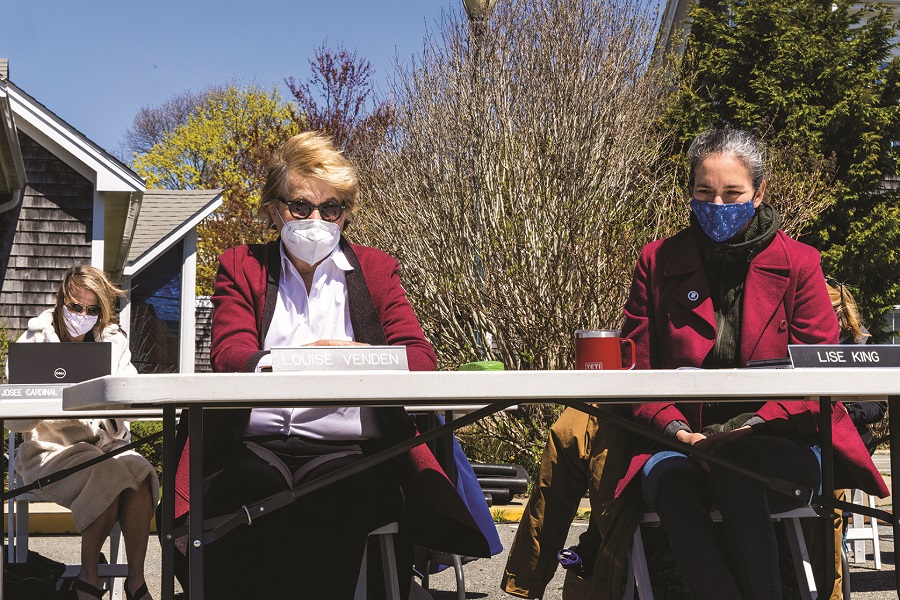
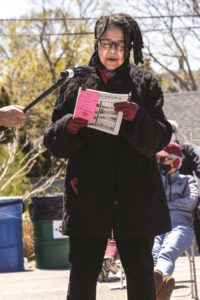
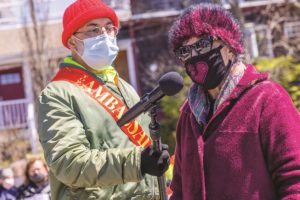
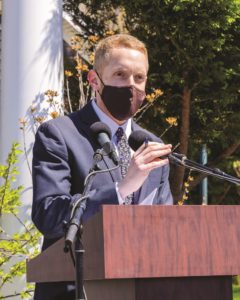
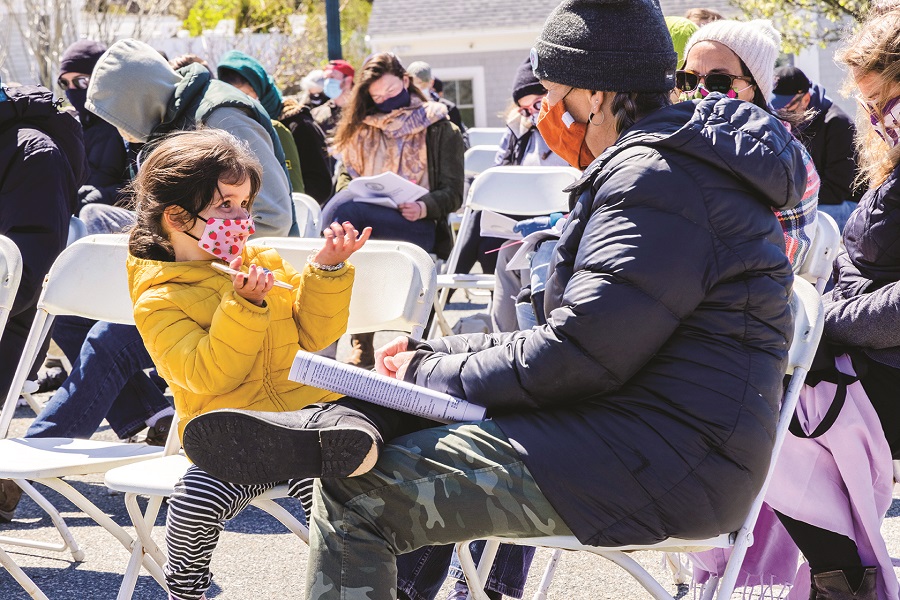

 “Given where we are in this moment in history, I wouldn’t want to see Provincetown step back from this,” said finance committee member David Panagore. “The town manager will have control of the sequencing, and he can have the study done first, before the hiring.”
“Given where we are in this moment in history, I wouldn’t want to see Provincetown step back from this,” said finance committee member David Panagore. “The town manager will have control of the sequencing, and he can have the study done first, before the hiring.”
